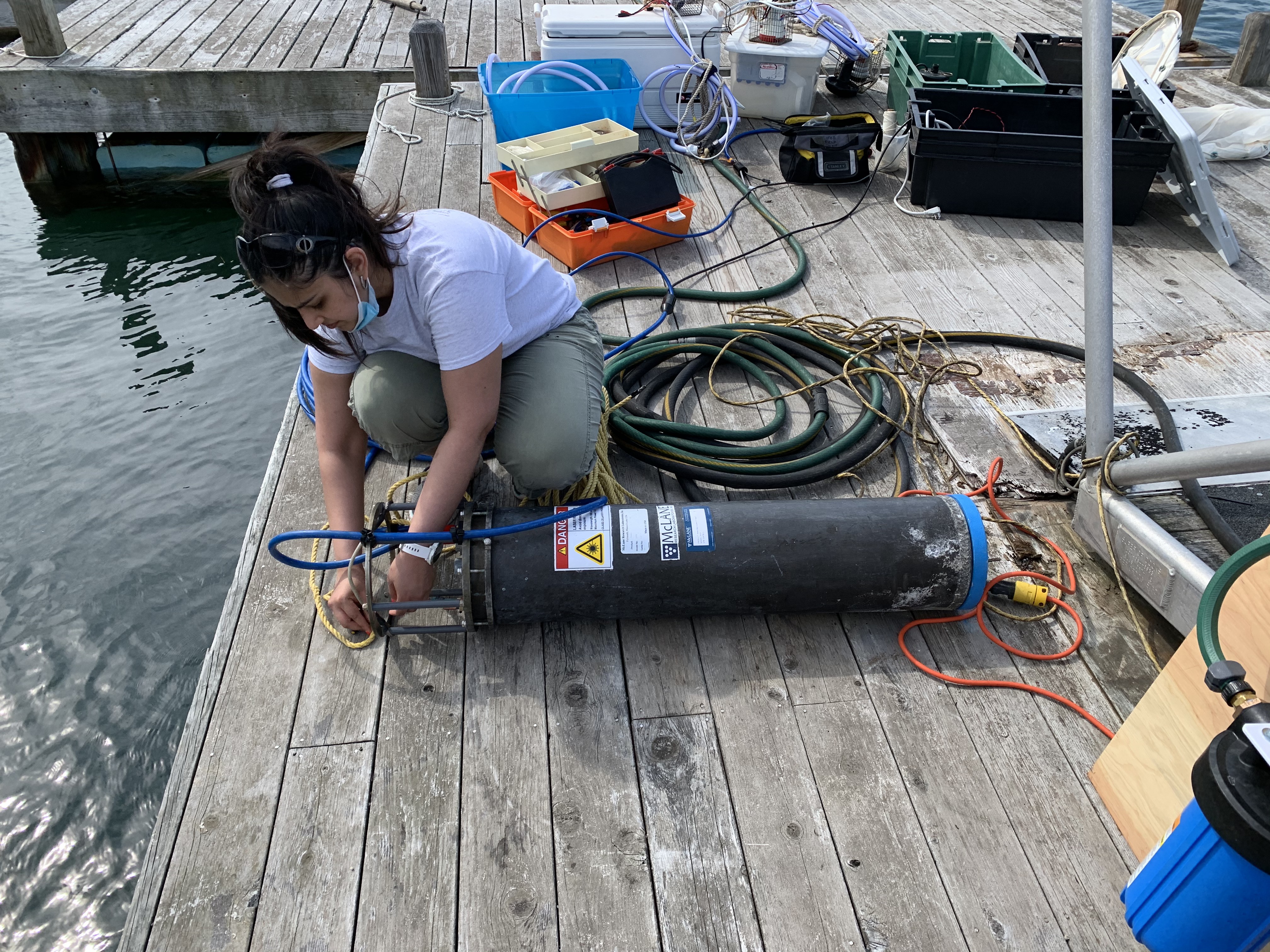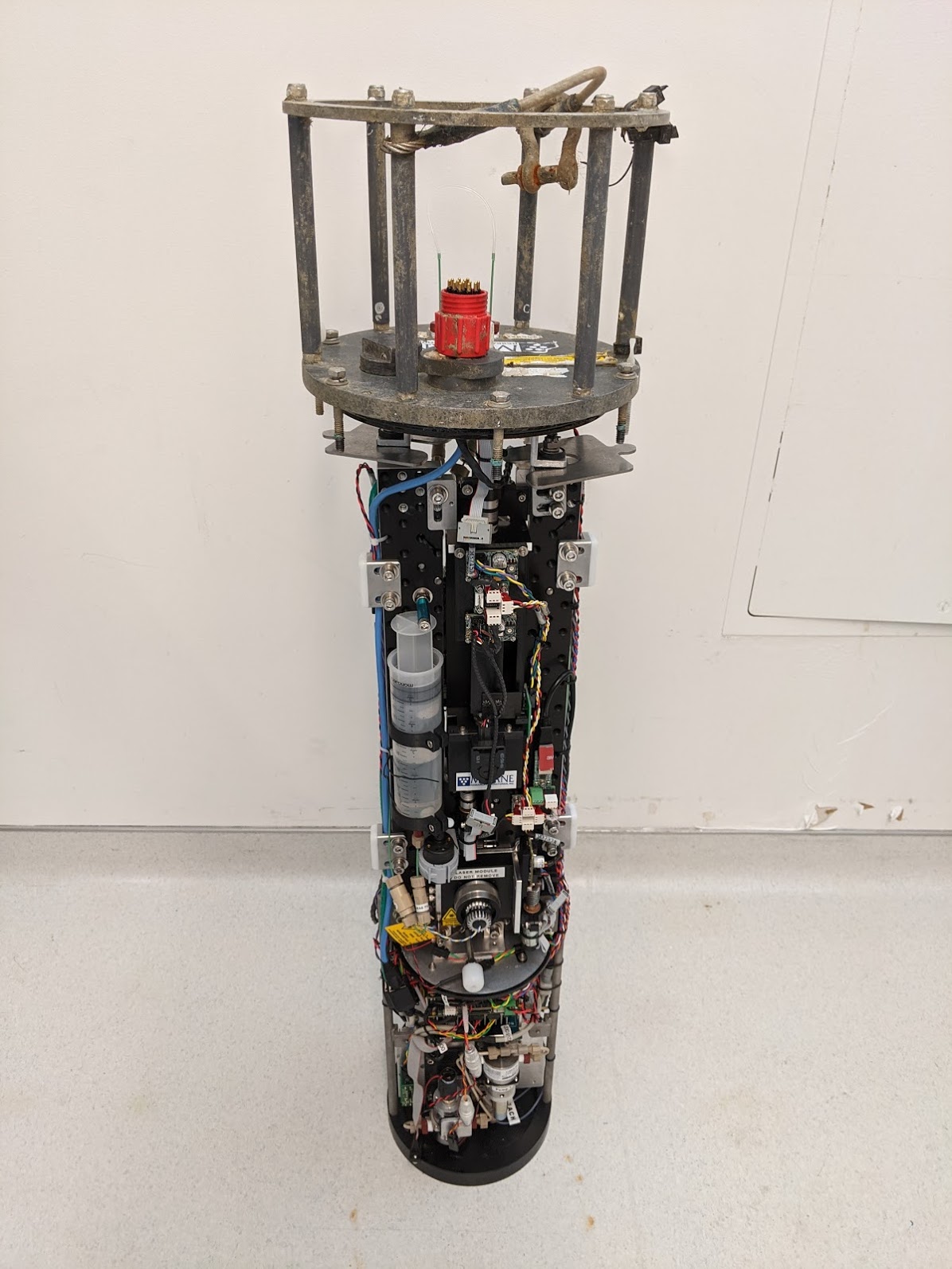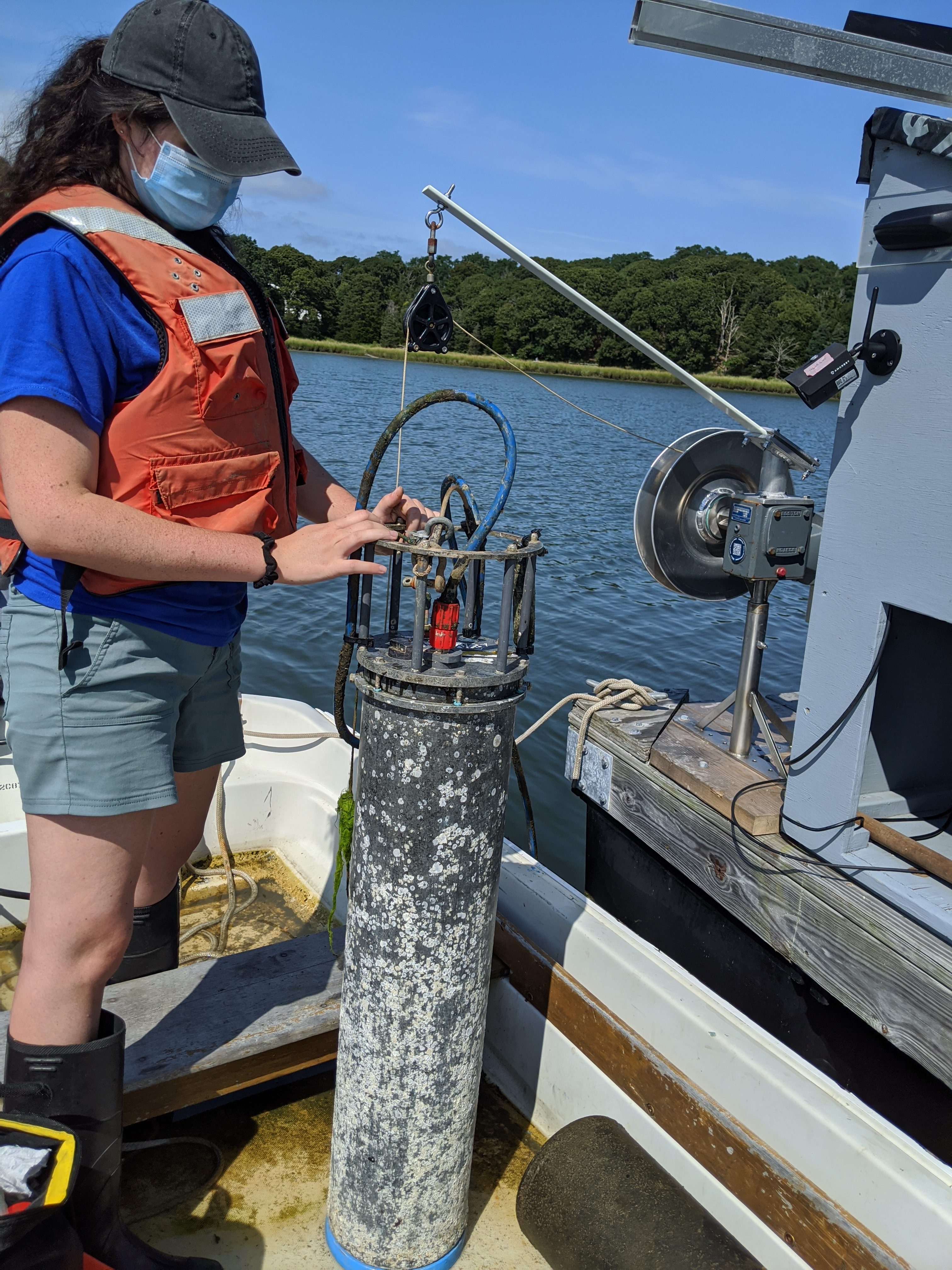Imaging FlowCytobot

Research Assistant Mrunmayee Pathare does field testing on an IFCB.
The Imaging FlowCytobot (IFCB) is an automated submersible microscope that takes images of up to 10 individual plankton per second. They can capture up to 15,000 images of cells over a period of 25 minutes, and can be deployed for periods of 6 months or longer. Computer-based software tools take these images and rapidly identify species diversity and abundance, as well as insights into HAB behavior, physiology and ecology, including rates of division, predator-prey interactions, and life cycle transitions.
One benefit of IFCBs are the capability to function “cable free” on offshore sampling rigs, transmitting their data wirelessly to shore in real-time and allowing researchers to adjust sampling parameters as the environment fluctuates. The tradeoff for this uniquely accessible data set is the large power draw that both the IFCB sampling and data transmission require. IFCBs have traditionally been paired with solar arrays and batteries on stationary sampling rafts, but new developments in autonomous surface vehicles (ASVs) will allow IFCBs to move and sample actively while meeting those power requirements.
IFCBs are best deployed in conjunction with a secondary sampling apparatus to clarify cases of contested identity. Many HAB species closely resemble nontoxic relatives, even at the microscopic level, so when the IFCB does come across a potentially toxic plankton, a different sampling mechanism must be deployed. One such mechanism is the Environmental Sample Processor, or ESP, which can be remotely activated to identify a species by its specific toxin or ribosomal RNA signature. Another mechanism is through ARISA (Automated Ribosomal Intergenic Spacer Analysis), which identifies specific strains of HABs by their DNA.


